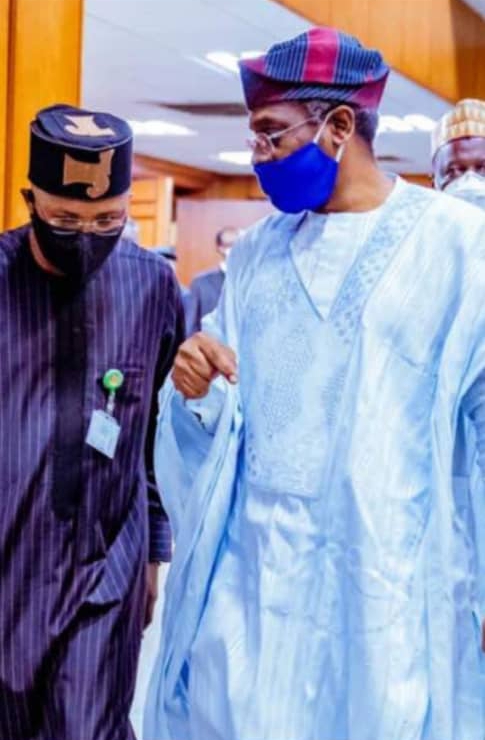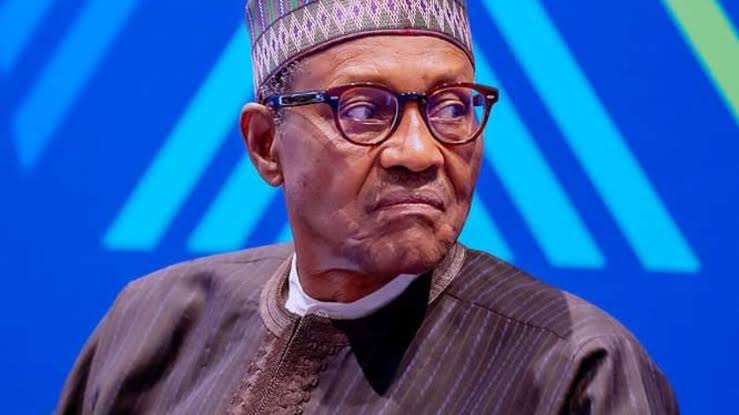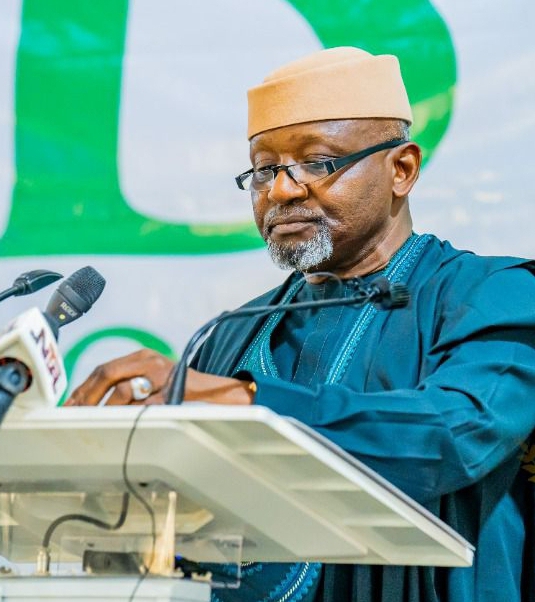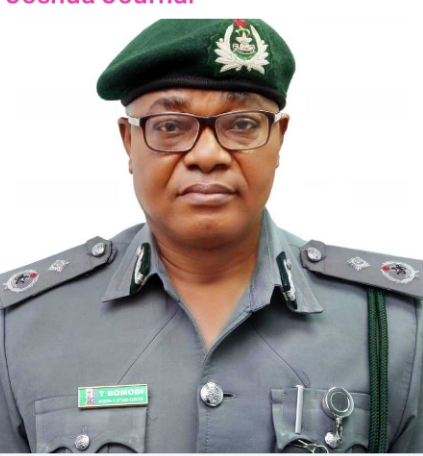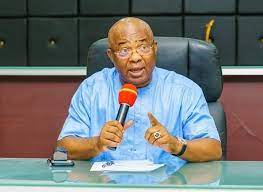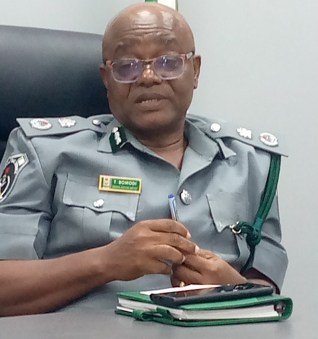Maritime
E-Customs Modernisation Contracts: Battle of the gods and the god-fathers
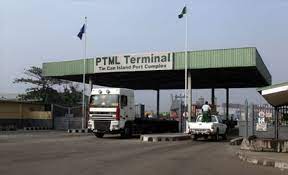
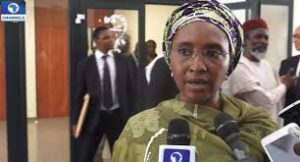
Ahmed
Perhaps, when the late Afrobeat legend, Fela Anikulapo Kuti wrote one of his greatest hits, ‘overtake don overtake overtake’, his satirical lyrics wasn’t just addressing the rate of internal lack of cohesion within the era of military coup palaces that was rampant at the time.
Fela probably saw far into the future, the disintegration of the Nigerian public and civil service and the collapse of the internal dynamics of its corporate governance by a horde of self serving political demagogues; reminiscent of the ongoing dance of shame in the modernization of the Nigeria Customs Service (NCS); otherwise known as E-Customs Modernization.
Fela’s lyrics ‘overtake don overtake overtake’ have since the commencement of the E-Customs Modernization contract found total expression in the melee of avarice and loss of sense of direction amongst key government officials, desperate to transform the modernization project into some sort of inappropriate retirement enterprise.
Coincidentally, these officials’ morbid greed appears to have found a corresponding fertile soil amongst contractors who itched and schemed in delirious dimension to undo one another just to grab the keys to customs operations.
As the scheme reached the watershed on May 30 2022, certain things unknown and done in the dark are steadily coming to light. Not the least are stealthy and unethical actions by some of the state actors, allegedly to influence the contract to suit their primitive greed, such as negotiating a cut in the contract.
Concerned Nigerians also warned about the legal and financial implications of a sloppy contract deal; all of which, from the benefit of hindsight were ignored by the bandits of fortune; as the modernization project rolled into trouble waters soon after it was ‘signed and sealed’.
With a flurry of litigation that has put the contract on hold, Nigeria is caught in the middle and struggling for breathe, figuratively sandwiched between the economic predators: the gods and god-fathers.
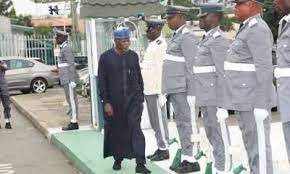
Col. Ali
But like every bandit, those holding the customs modernization project hostage are only concerned about themselves, thus Nigerians being the victim might as well brace up for the worse. There is no telling how long these bandits will hold out in the struggle to secure the signed agreement, and thus hold fast until the very end; unless by divine providence, otherwise decided.
For a seemingly stubborn, deaf, dumb and arrogant government which takes delight in perpetually listening to itself inspite of well meaning public concerns and superior arguments, it is not unexpected that its critical businesses are most likely to end up in disasters.
This has been the fate of the President Muhammadu Buhari Government in virtually all aspects of state critical businesses undertaken by it, be it fuel subsidy, Chinese loans for railway rehabilitation, questionable RUGA pastoral programme, Nigerian Air, cargo scanners, weak security architecture and management, etc.
Even as it was during the procedural hush-hush, it is no longer news that controversies have dogged the project award, courtesy of alleged entrenched interests by top government functionaries who are believed to have laid bobby traps on the path of interested bidders; intent on influencing the bid to favour predetermined contractors, ostensibly to make it possible for them individually, to have a piece of the cake.
Three years down the line, legal fireworks have begun and there is no determining the extent and compositions of these litigations; some of which may likely cost government huge financial costs, either in fines or compensations; without even having to consider its negative image on the country.

Boss
Interestingly, E-Customs HC Project Limited that dragged the Federal Government to court, claiming to be the real concessionaire that won the customs moderninzation project, is perhaps only part of the five leprous fingers laying claiming to the controversial contract. There are indications that before E-Customs HC Project Limited, there was a consortium known as Messrs Adani Mega Systems Limited/ Webb Fontaine, that earlier bidder for the same contract, before they were out staged.
There are suggestions that E. Customs HC Project Limited outsmarted Messrs Adani Mega Systems Limited/ Webb Fontaine, and became the recognized bride.
In 2020, the National Assembly (NASS) advised the Federal Government against subverting the contract believed to have been awarded to Messrs Adani Mega Systems Limited/ Webb Fontaine, to Messrs E. Customs HC Project Limited.
As a matter of fact NASS warned that the Federal Government risk incurring heavy litigation fees if it went ahead to sign the contract with E-Customs HC Project Limited. NASS further advised that integrity should have a role to play in the concession; as the legislators were favourably disposed to Messrs Adani Mega Systems Limited/ Webb Fontaine; having apparently shown the earliest interest, a request that was undoubtedly and straightaway endorsed by government.
That was before the presidency was rumoured to have blackmailed Webb Fontaine out of the deal, for obvious reasons, effectively leaving the coast open to E-Customs HC Project Limited. The said legislative recommendation was contained in a report by the House of Representatives Joint Committee on Finance, Customs and Excise and Public Petitions, which purportedly investigated the contract deal.
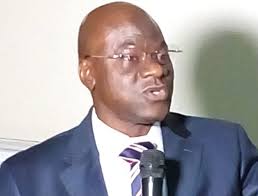
ANLCA Board Chairman
The House Committee was concerned that the FG may have ignored an earlier advise by “the Solicitor General of the Federation to the Minister of Finance, Ms. Zainub Ahmed, which purportedly urged her to consider the strength and weakness of pushing Messrs Adani Mega Systems Limited/ Webb Fontaine aside.
According to the report, the finance minister was also advised to consider the likely litigation that may follow; and how that may affect the ultimate goal of government for revenue generation.
On May 20, 2022, the Federal Government pulled a surprise by awarding the contract to Trade Modernization Project Limited, with Huawei Technologies Company Nigeria Limited as the IT partner, and African Finance Corporation as the financier.
The development effectively denied E-Customs HC Project Limited the vaunted status of the bid winner. Those whose business it is to know expressed surprise at the turn of event and wondered at what point Trade Modernization Project Limited came into the bargain.
However, barely two weeks after announcing the deal, E-Customs HC Project Limited and Bionica Technologies (West Africa) Limited jointly challenged the contract deal in an Abuja High Court; in which Trade Modernization Project Limited, Huawei Technologies Company Nigeria Limited and African Finance Corporation; were individually and severally joined as co-defendants.
Justice Inyang Ekwo of the Federal High Court Abuja Division who presided over the case commanded the Federal Government and its agencies to stay action on the execution of the project pending the determination of the suit.
It will be recalled that the House Committee in its report had advised the presidency to take another look at the contract to ensure the FG does not take action that will be adjudged exercised in bad faith, or turn out to have been ill advised and embarrassing; and which may lead to unnecessary, costly litigation at a time the national economy is still struggling.

Dr. Nweke
It is instructive to note that the NASS report made reference to the then ongoing litigation instituted by the consortium (Messrs Adani Mega Systems Limited/ Webb Fontaine) earlier given the job in a suit that challenged the cancellation. The suit with registration No FHC/ABJ/CS/850/2017 which was filed in December 2018 at the Federal High Court Abuja, was speculated to have the capacity to stall the contract which had been re-awarded to E-Customs HC Project Limited.
The House Committee advise contained in its letter written in October 2019 to the presidency reads: “On the other hand, the Presidency through the office of the Chief of Staff to the President issued a letter dated 17th September, 2019 engaging the consortium titled ‘Presidential Initiative on Customs Modernisation’ to carry out the same project awarded to Messrs Adani Mega Systems Limited/ Webb Fontaine seven months after they were engaged by CBN- CISS.
“It is the opinion of the Committee that the Presidency was not duly informed of the existing contract agreement and litigations filed by Messrs Adani Mega Systems Limited/ Webb Fontaine”
The report was of the opinion that Federal Government breached the prior contract terms on the basis of a June 20, 2016 bid advert. The Joint Committee report which was signed by James Abiodun Faleke, Chairman Finance; Jerry Alagbaoso, Chairman Public Petitions; Yuguda Hassan Kila, Chairman Customs; Lawali Ibrahim, Clerk to Committee on Finance and Aliyu Maccido, Clerk to Committee on Customs believed that the controversial cancellation and re-award of the contract happened with the consent of the late Chief of Staff to President Muhammadu Buhari, Mallam Abba Kyari.
Analysts posit that it was easy for the Federal Government to arm twist Webb Fontaine out of the contract, because it was already handling the Nigeria Customs Service IT infrastructure; a contract believed to have wobbled and fumbled; leading to occasional breakdown of its servers.
According to expert opinions, under such circumstances, it was logical and understandable that Webb Fontaine played the fool and beat a tactical retreat, in the realization that in a saner clime; bidding for the controversial contract, similar to the project they were already executing not only lacked integrity, but considered fraudulent given that the current one they handled is being tolerated on the grounds of political consideration.
It is noteworthy that Webb Fontaine offered open apology to the powers that be; powers that had all it required to terminate its long tenured IT infrastructure contract, fair and square, citing underperformance.
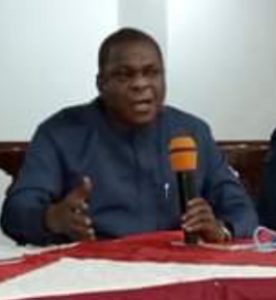
Amiwero
Nor were privileged Nigerians involved in the Webb Fontaine deal willing to loss out of the priced opportunity, to chase after a new deal they hardly possessed the moral grounds to contest its cancellation. The controversy about the ‘contract splitting’ as it were, and the argument that the job content of Webb Fontaine project and the current so-called E-Customs Modernization being one and same, is another area this government is believed to have attempted to create some smokescreen.
The 2005 Webb Fontaine was designed to address about five key components: Secure Revenue, Build Customs Webb, Single Window, Infrastructure Solutions, Customs Modernization.
Can Ms. Zainab Ahmed, the finance minister’s perspective below in support of the current customs modernization in factual terms be separated from the job content of the prior customs infrastructure capacity building being executed by Webb Fontaine?
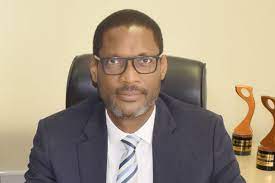
Babalola
According to the finance minister, “The main objective of this project is to completely automate every aspect of the customs business and to institutionalize the use of smart and emerging technologies that will enhanced the statutory function of the Nigerian Customs Service in the areas of revenue generation as well as trade facilitation and enhancement of security.”
Ahmed said the project, to be delivered by Messrs E. Customs HC Project Limited, will be financed by sponsors “who will in return look over the investment in the concessionary period of 20 years” while it has the potentials to generate up to $176 billion for the country.
“So this investment of $3.1 billion is broken down into capital investment of $1.2 million which will be done in three phases over 36 months by these investors and $1.1 million is our projection of the operational cost over the 20-year period of the implementation of this project.”
Maritime lawyers at the time faulted the award, noting it lacked transparency. Barrister Emeka Akabogu, unarguably one of the front line maritime lawyers speaking on the development said, “Transparency will determine if the scope of the project justifies the investment. I certainly feel that the stated cost is not just high, it is mind-boggling. Automation will certainly involve new technology and innovation, but it is not rocket science.
“The project being contemplated will probably incorporate complete automation of data submission and verification processes for cargo clearance in a formalities single window. I absolutely subscribe to it as it will resolve the current issues which bedevil import clearance efficiency including extortion and under-declaration. But it will not cost $3.1bn and does not need a 20-year concession.”
He also frowned at the absence of a legal framework to drive the initiative.
“Even though Nigeria is signatory to the Trade Facilitation Agreement, it is not implementing most of its highlight provisions which could greatly alleviate the challenges in the immediate term and which don’t need expenditure of ridiculous sums to achieve.
“Any investment in customs modernization without starting from the legal framework and policy quick-wins will be cosmetic and self-defeating.”
Also commenting, a maritime resource pundit and former President, National Association of Government Approved Freight Forwarders (NAGAFF), Dr. Eugene Nweke accused the presidency and the federal executive council of insincerity in the handling of the automation of customs critical processes, noting that state actors involved in the framework designs and contractual negotiations did most of the jobs amid nursing personal interests.
Nweke worried that these entrenched interests may have negatively impacted the quality of the various project designs, negotiations and output; giving rooms to the repetition of the same jobs, resulting in unwarranted criminal financial leakages and wastage of scarce resources.
According to him, if the finance ministry and customs service have demonstrated the required integrity and transparency in the prior modules of customs process automations, there would be no need for the current exercise; which he worried has also began on shoddy note.
Nweke said the finance ministry and customs are subjecting Nigerians to shady deals and embarrassment, and wondered if the whole twists and duplicitous contract elongation was not designed to shortchange Nigeria.
“In 2012 the Nigeria Customs Service published the following claims on the development of e-customs through ASYCUDA: The development of the ASYCUDA project was intended to ensure a smoother, fast and transparent goods clearance process.
“To this end the service developed the following electronic (e-) applications to boost the ASYCUDA operations: e-manifest; e-manifest; e-remittance; e-notifications; e-Government platform for single window to stakeholders in international trade; e-release; and e- provision of NCS National Private Telecom Network.”
According to the former NAGAFF leader, the above laudable concept which progressed into NICIS 1 &2, received the endorsement of critical stakeholders including the World Customs Organization; and wondered why having regards to such existing artery of connectivity, the federal government, its ministries and agencies are still developing additional contract designs to either override or duplicate what is already in existence.
“Is it right to conclude that the NCS all along knew that the previous modernization efforts of the FMOF was not the typical modernization solutions required for our import and export trade needs, but failed to advise accordingly?
“A deeper check confirms that there is nothing wrong with the systems, except for human integrity questions. The noticeable challenges as enumerated by the NCS can actually be improved upon by enhancement alternatives or further value added tool, instead of concessioning.”
Unapologetic, the avid research fellow also feared that the contractual processes may have been compromised, and challenged the state actors to provide evidence that proper bid processes were carried out to ensure that the most qualified bidder got the contract.
“Can the FMOF give detailed explanation on the procurements processes and procedures as contained in the public Procurements Act (and show that it) was compromised?
“It will suffice if reference can be made with regards to the concession advertorial publications on the national dailies, lists of bidders, screening process of the bidders and the winner of the bid process.”
Nweke accused the federal government of impunity for refusing to seek legislative input into the customs modernization contract. He also pooh-pooh the ongoing automation process by Webb Fontaine which started since July 2005, further describing the current effort as an unnecessary duplication designed to serve selfish ends.
“At what point did a public hearing (was) held to this effects? It is the same FMOF that is at the center of the contract. It is also on record that the Optic Server for the NCS satellite support infrastructure was a very narrow tunnel, which had impeded operational outputs.”
A FIATA registered freight forwarder, Nweke argued that Ghana who borrowed Nigeria’s automation programme at the point Webb Fontaine started building Nigeria’s infrastructure in 1997 has since completed its automation programme, while Nigeria is shelling out a fresh $3.2billion automation contract.
He also expressed reservation about the choice of Chinese’ Huawei Technologies Nigeria Limited, whose competence he doubted as a globally recognized technical partner in critical port ICT.
“Could the FMOF or NCS tell Nigerians at least two countries in the world, where Huawei Technologies has undertaken or is undertaking such magnitude of tasks” and wondered “if the modernization concession contract was actually skewed against the national interests?”
Nweke said he has nothing against a well structured, well intentioned and properly executed customs modernization contract, except that “There are hidden and unwritten motives- mostly ulterior motives, aka vested interests.”
As things stand, there are established suspicions that some state actors involved in the controversial customs modernization deliberately introduced certain grey areas in the contract design, built a thick wall of underhand deals hiding behind official confidentiality, and generally believed to have promoted high heel fraudulent contract processes.
In its advertorial, E-Customs HC Project Limited accused the customs leadership of acting beyond his brief, by transferring the contracts deed of ownership to a concessionaire other than was purportedly processed by FEC and approved by the finance ministry.
It is unclear why a customs boss who is directly under the supervision of the finance minister could act in disobedience and seeming disrespect to the latter’s express official position? What interest would the former be protecting, or for that matter, be contesting, to the extent of supplanting a ministerial approval with his own approval?
Are there hidden conflicts of interests and or personal agenda amongst state actors involved in the contract? Away from the customs helmsman and the finance minister, this contract smacks of other plethora of intrigues, power play and certain levels of blackmail; executed by big money, no doubt in return for bigger, questionable money.
But like the saying goes, in every underground business fight, fair is foe, and foe is fair. Is that what Nigerians are seeing?
Karma philosophers say, is a bitch. Once E-Customs HC Project Limited out staged some competitors in what was adjudged unfair circumstances; it would appear that time has run full circle, today E-Customs HC Project Limited is crying foul; having lost out at the very end, to a much more odious and uncanny power play; and adventure of the underdog!
In conclusion, in the final analysis, given all the facts and all evidences aforementioned, it would appear that the Nigerian people are the ultimate victims; caught in the middle of a monstrous, roguish and nonconformist tribe war.
Indeed, emasculated by a dubious, self serving, arrogant political and business class, among whom, like thieves, there are no honour.


